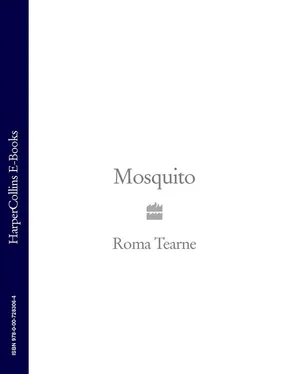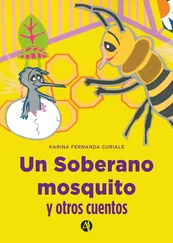‘She comes here too often, Sir, now,’ he warned. ‘There are certain people in this town who are very interested in that family.’
She was friendly enough, thought Sugi, but still, she might bring trouble with her. Someone had once told him she had stopped talking after her father died, but from what he could hear she never stopped when she was with Theo. Her drawings, he reluctantly admitted, were another matter. They were good. Sir had them scattered all over the house and now, in this latest development, the girl was going to work on Mr Samarajeeva’s portrait in the house. Sugi shook his head. He could not understand how the mother could care so little that she let her daughter wander around in this way. How could a respectable Singhalese woman be so negligent? Rumour was that Mrs Mendis had become unhinged since the tragedy. But then, thought Sugi, going off on another track, everyone is strange nowadays. The things that had happened in this place were turning people mad. It was not possible to have normal lives any longer. It was not possible to walk without looking over your shoulder at all times. Without wondering who was a friend and who a new enemy. Fear and suspicion was the thing they lived off, it was the only diet they had had for years. Almost every family he knew was touched in some way by the troubles, living with the things they were too frightened to talk about. There was no point, no point to anything. One just waited, hoping. Dodging the curfew. Hoping not to put a foot wrong, thought Sugi, hoping not to tread the rusty barbed wire hidden in the sea sand.
A few nights previously Sugi had cautioned Theo again. Not that it was any use, but he had tried.
‘You must not walk on the beach when there is a curfew. The army is watching. Or if they are not, then there are thugs who will watch for them. Believe me, Sir. And another thing, you shouldn’t have given your talk about your book at the schools. They won’t like that.’
‘It is no way to live,’ said Theo Samarajeeva frowning. ‘No one owns the beach. Sugi, there are many countries all over the world that have trouble like this. We must not give in to the bullies.’
‘Ours is a very small country,’ Sugi said, shaking his head. ‘No one cares about us. Why should they? Only we care about the differences between the Singhalese and the Tamils. No one understands what this fight is about. We hardly understand ourselves any more.’
Theo nodded. He brought out his pipe and began tapping it.
‘When the British brought the Tamils here from India, some people thought they brought trouble to this island,’ Sugi said.
Theo was trying to light his pipe but the breeze kept whipping the flame so that he had to turn away. Sugi continued to stare into space. When he spoke at last he sounded agitated.
‘What is wrong with us that we behave in this way?’ He watched as Theo struggled to relight his pipe. ‘Isn’t it possible for us to solve this thing peacefully?’
‘It will take longer than we think,’ Theo said, He put his match into the ashtray Sugi handed him. ‘Why should the world care, Sugi?’ he asked gently. ‘We aren’t important enough for the British any more. And unlike the Middle East, we have no oil. So we can kill each other and no one will notice. That’s why things will take longer than we think.’
He knew from his life in England, people thought Sri Lanka was a place spiralling into madness; and yes, he thought, it was true, no one cared.
They had taken to having these conversations in the evening when the curfew was on. The girl never came after the curfew. Sugi was thankful that at least her mother had the sense to keep her in at night. So Theo had only Sugi to talk to. Sugi was always careful to keep a respectful distance from Mr Samarajeeva during these discussions. Occasionally he accepted a cigarette or a beer but never anything else. He stood a little away from the chairs; he would never accept a seat. Sometimes he squatted on the step, the end of his cigarette glowing in the dark.
‘I would like to see England,’ he said one night. ‘I think the people there are not like us.’
‘No, they’re not. But they have their own problems, Sugi, their own battles. Just as pointless in their different ways. And I never really felt I belonged there.’
‘Even after all that time, Sir?’
‘No,’ said Theo with certainty. ‘These are my people. This is where I belong.’
But Sugi was doubtful.
‘Don’t mistake our friendliness, Sir. We are Buddhists but these days we have forgotten this,’ said Sugi. ‘We are quite capable of killing. It isn’t like before. When you were last here. Things are complicated now. These days we don’t know who we are.’
Theo nodded in agreement. ‘They should have known it wouldn’t end simply,’ he murmured.
‘Who? The Tamils?’
‘No, Sugi,’ Theo said. He sounded sad. ‘I mean those who conquered us. I mean the British. Their presence casts its shadow on this island. Still.
‘Cause and effect, Sir. Just as the Buddha said.’
But Theo was following his own thoughts.
‘Why are we surprised by this war, Sugi? Has there ever been a country that, once colonised, avoided civil war? Africa? India? Burma?’
Night flowers appeared everywhere in the garden, blooming in ghostly clusters, their branches pouring scent into the air. Frogs croaked, small bats moved silently in the trees, and here and there, in the dull light of the lamp, silvery insects darted about. On one occasion Sugi shone a torch into the undergrowth, convinced a nest of snakes lurked close by. He advanced with his axe but then the moon had gone behind a cloud and he could not find a single one. At other times, on certain nights, suddenly there were no sounds at all. No drums, no radios, no sirens. Nothing moved in the darkness and at such moments Sugi’s nervousness would increase. The silence, he complained, was worse than all the noise, the atmosphere created by it, terrifying in a different way. Suspense hung heavily in the air; at such moments anything could happen. For in Sugi’s experience, most murders were committed in the lull before the full moon. Whispers alighted as softly as mosquitoes on unsuspecting flesh; whispers of torture. And the smell of death brought the snakes out. Theo listened to Sugi’s fears without speaking. But then, sometimes, on these faceless nights, as they sat talking in the garden, they would catch the unmistakable sigh of the great ocean drifting towards them. They would hear it very clearly, rushing and tugging, to and fro and across, in an endless cycle as it washed and rewashed the bone-white shore. And as always, as they listened, the sound of it comforted them both.
By the time Theo Samarajeeva returned from Colombo the back room of his house had been cleared, the walls lime-washed, and Nulani Mendis was installed with her canvases, her paints and her cheap thinners. The house smelt of coconuts and linseed oil. He knew she was there even as he approached, even as the bougainvillea cascaded into view over the new garden wall. The light from the mirrors in this hastily devised studio flickered in a dazzling way, casting intermittent reflections on everything in the room. Theo watched through the open window as Nulani crouched on the ground working on the painting. She used rags to mix the paint, and rags to layer it smoothly on to the canvas. All around were her pencil drawings of him. He could not see her face. Slivers of light danced on her hair. He did not know how long he stood watching her. Time stood still.
After a while she moved, placing the painting against the wall beside a chair where the reflections continued to tremble, uninterrupted. There was an old jug made of thin dusty glass nearby on a shelf. Shadows poured endlessly into it where once it must have held liquid. The heat was impossible. Before he could say anything she turned suddenly and saw him. Her instantaneous smile caught them both unawares. It must have been a trick of the light, thought Theo surprised, but the day seemed exceptionally pierced by the sun.
Читать дальше












